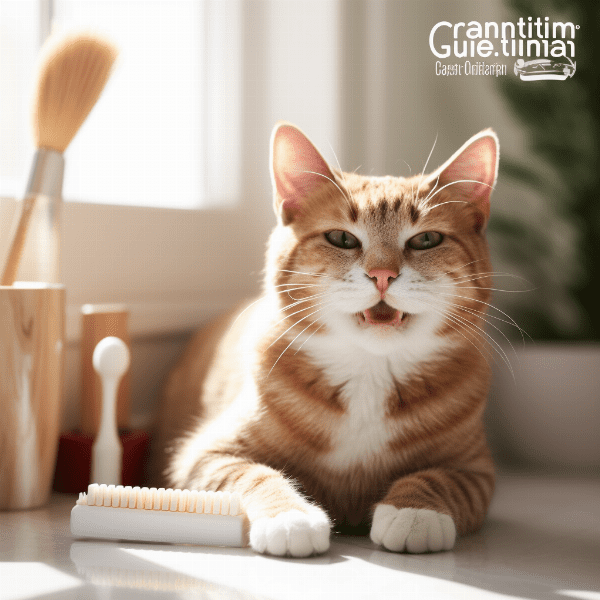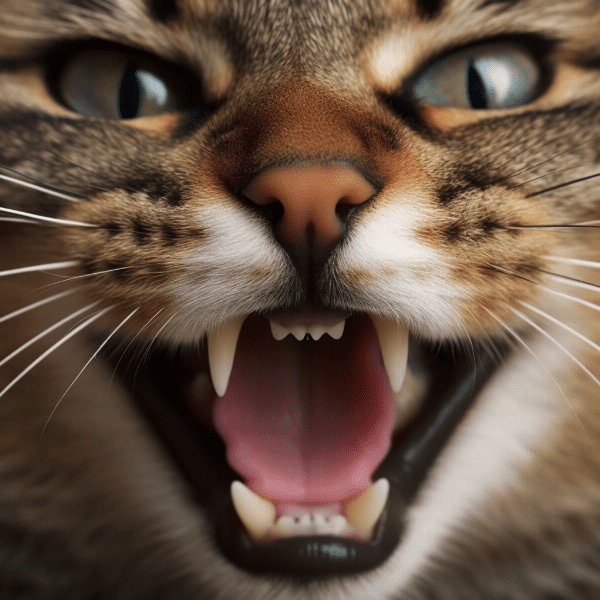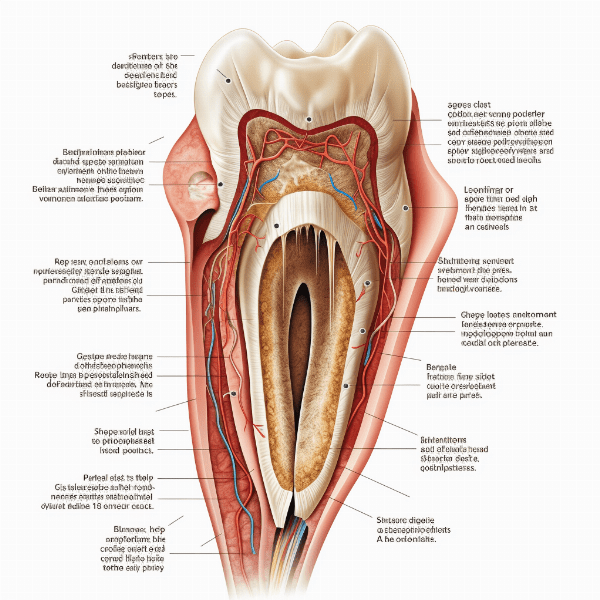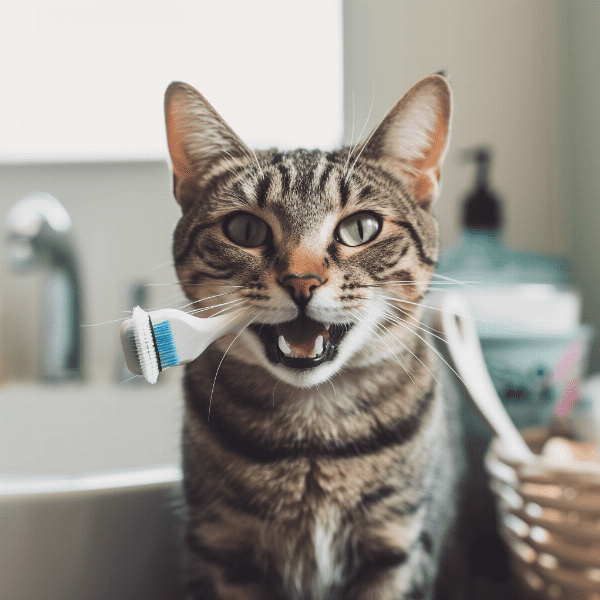Table of Contents
- Understanding Cat Gingivitis: Symptoms and Causes
- The Importance of Early Detection and Treatment
- At-Home Dental Care for Cats: Best Practices
- Natural Remedies for Cat Gingivitis: Do They Work?
- Diet and Nutrition for Cats with Gingivitis
- The Role of Professional Dental Cleanings in Cat Gingivitis Treatment
- Medications for Cat Gingivitis: Pros and Cons
- Preventing Cat Gingivitis: Tips for Long-Term Dental Health
- Monitoring Your Cat’s Progress: When to Seek Veterinary Care
- Conclusion: Maintaining Your Cat’s Oral Health at Home
Understanding Cat Gingivitis: Symptoms and Causes
Gingivitis is a common and often painful dental condition in cats. It occurs when the gums become inflamed due to the accumulation of plaque and tartar on the teeth. The bacteria in the plaque produce toxins that irritate the gums, causing redness, swelling, and bleeding. If left untreated, gingivitis can progress to periodontitis, a more severe form of gum disease that can lead to tooth loss and other serious health problems.
Symptoms of Cat Gingivitis
Cats with gingivitis may exhibit a range of symptoms, including:
- Bad breath (halitosis)
- Red, swollen, or bleeding gums
- Difficulty eating or chewing
- Excessive drooling
- Pawing at the mouth
- Tooth loss or loose teeth
- Changes in behavior or mood (due to pain)
It’s important to note that cats are experts at hiding pain and discomfort, so they may not show obvious signs of gingivitis until the condition is advanced. That’s why regular dental checkups with your veterinarian are crucial for catching and treating gingivitis early on.
Causes of Cat Gingivitis
Gingivitis in cats is primarily caused by poor dental hygiene. When cats don’t receive regular teeth cleanings, plaque and tartar can build up on the teeth and gums, leading to inflammation and infection. Other factors that can contribute to cat gingivitis include:
- Age: Older cats are more susceptible to gingivitis due to weaker immune systems and a lifetime of dental wear and tear.
- Diet: Cats who consume a diet high in carbohydrates and low in moisture may be more prone to gingivitis.
- Genetics: Certain breeds of cats may be more prone to dental problems, including gingivitis.
- Other health conditions: Gingivitis can be a sign of other health problems in cats, such as kidney disease or diabetes.
Understanding the underlying causes of cat gingivitis can help you take steps to prevent the condition and protect your cat’s dental health.
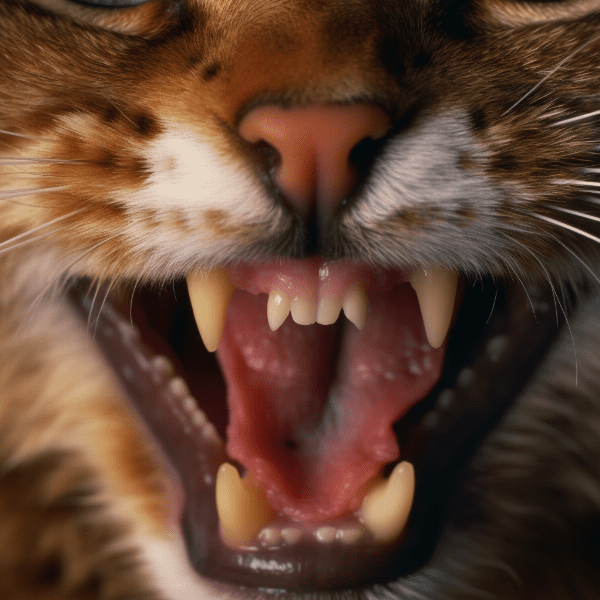
The Importance of Early Detection and Treatment
Early detection and treatment of cat gingivitis are crucial for preventing the condition from progressing to a more severe form of gum disease. When left untreated, gingivitis can cause the gums to pull away from the teeth, creating pockets where bacteria can accumulate and cause further damage. Over time, this can lead to tooth loss, bone damage, and even systemic infections that affect the entire body.
Risks of Delaying Treatment
Delaying treatment for cat gingivitis can have serious consequences. Some of the risks associated with untreated gingivitis include:
- Pain and discomfort: Gingivitis can cause pain and discomfort in cats, making it difficult for them to eat or chew.
- Tooth loss: As the condition progresses, cats may lose one or more teeth, which can affect their ability to eat and lead to further dental problems.
- Bone loss: If gingivitis is not treated, it can lead to bone loss in the jaw, which can weaken the teeth and make them more susceptible to further damage.
- Systemic infections: Bacteria from the gums can enter the bloodstream and travel to other parts of the body, causing infections in the kidneys, liver, or heart.
Benefits of Early Detection and Treatment
On the other hand, early detection and treatment of cat gingivitis can have a range of benefits, including:
- Reduced pain and discomfort: Treating gingivitis early can help reduce pain and discomfort in cats, allowing them to eat and chew normally.
- Improved dental health: Early treatment can prevent the condition from progressing and causing further damage to the teeth and gums.
- Lower risk of tooth loss: By catching and treating gingivitis early, you can lower your cat’s risk of losing teeth due to the condition.
- Better overall health: By preventing systemic infections and other health problems associated with untreated gingivitis, you can help your cat live a longer, healthier life.
In summary, early detection and treatment of cat gingivitis are crucial for protecting your cat’s dental and overall health. If you suspect that your cat may have gingivitis, be sure to schedule a dental checkup with your veterinarian as soon as possible.
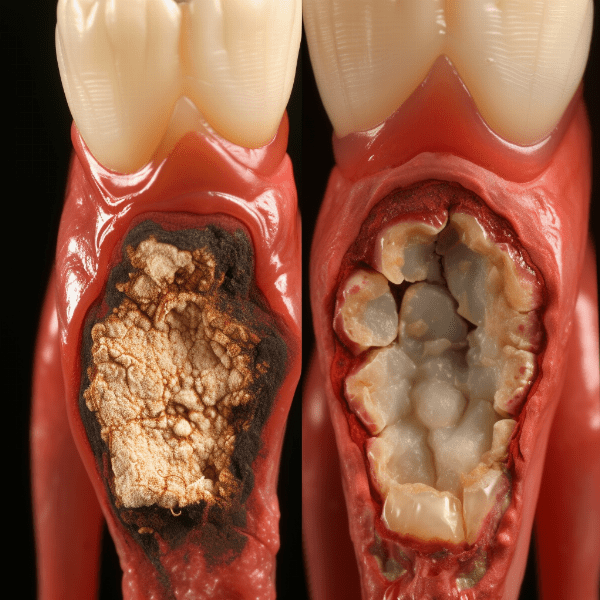
At-Home Dental Care for Cats: Best Practices
Regular at-home dental care is essential for preventing cat gingivitis and maintaining your cat’s dental health. Here are some best practices to follow when caring for your cat’s teeth at home:
Brushing Your Cat’s Teeth
Brushing your cat’s teeth regularly is one of the most effective ways to prevent gingivitis and other dental problems. Use a soft-bristled toothbrush and toothpaste specially formulated for cats. Start by getting your cat used to having your fingers in their mouth and gradually introduce the toothbrush. Brush in circular motions along the gumline, being careful not to brush too hard or cause pain.
Providing Dental Treats and Toys
Dental treats and toys can help remove plaque and tartar from your cat’s teeth and gums. Look for products that are specifically designed to promote dental health, such as those that are designed to clean teeth or massage the gums. Be sure to supervise your cat while they are chewing on toys or treats to prevent choking or other accidents.
Regular Dental Checkups
Regular dental checkups with your veterinarian are an important part of maintaining your cat’s dental health. During these appointments, your veterinarian will examine your cat’s teeth and gums, remove any buildup of plaque and tartar, and recommend any necessary treatments or at-home care.
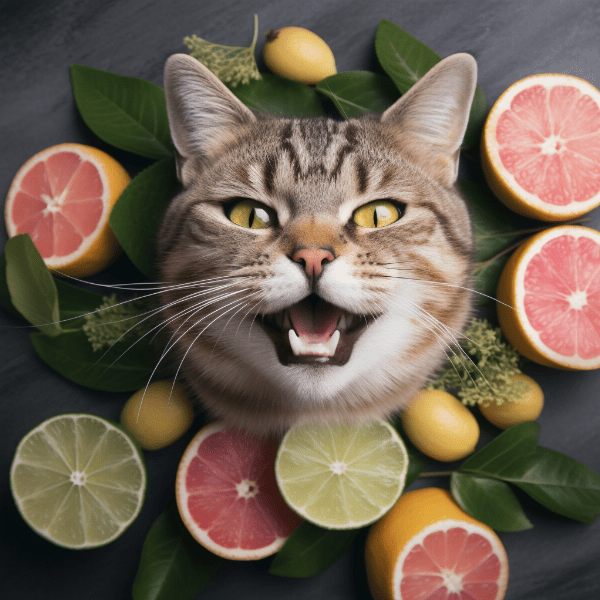
Natural Remedies for Cat Gingivitis: Do They Work?
Many cat owners are interested in natural remedies for cat gingivitis, as they may be more affordable or accessible than traditional treatments. While some natural remedies may help promote dental health in cats, it’s important to understand their limitations and potential risks.
Natural Remedies for Cat Gingivitis
Some natural remedies that are commonly recommended for cat gingivitis include:
- Coconut oil: Coconut oil has antibacterial and anti-inflammatory properties and may help reduce inflammation in the gums.
- Aloe vera: Aloe vera gel can be applied directly to the gums to help soothe inflammation and promote healing.
- Vitamin C: Vitamin C is an antioxidant that can help boost the immune system and reduce inflammation in the gums.
- Herbal remedies: Certain herbs, such as calendula and chamomile, may have anti-inflammatory and antibacterial properties that can promote dental health.
Limitations of Natural Remedies
While natural remedies may have some benefits for promoting dental health in cats, they are not a substitute for professional veterinary care. Gingivitis is a serious condition that can lead to tooth loss and other health problems, and it’s important to seek veterinary care if you suspect your cat may have gingivitis.
Additionally, natural remedies may not be appropriate for all cats. Some cats may be allergic or sensitive to certain herbs or supplements, and others may have underlying health conditions that make natural remedies unsafe.
When to Consider Natural Remedies
If you’re interested in using natural remedies to promote your cat’s dental health, it’s important to consult with your veterinarian first. Your veterinarian can help you determine which remedies may be safe and effective for your cat and can advise you on the best course of treatment.
In general, natural remedies may be most effective when used as part of a comprehensive dental care plan that includes regular at-home dental care, professional dental cleanings, and veterinary checkups. By working with your veterinarian, you can help ensure that your cat’s teeth and gums stay healthy and strong for years to come.
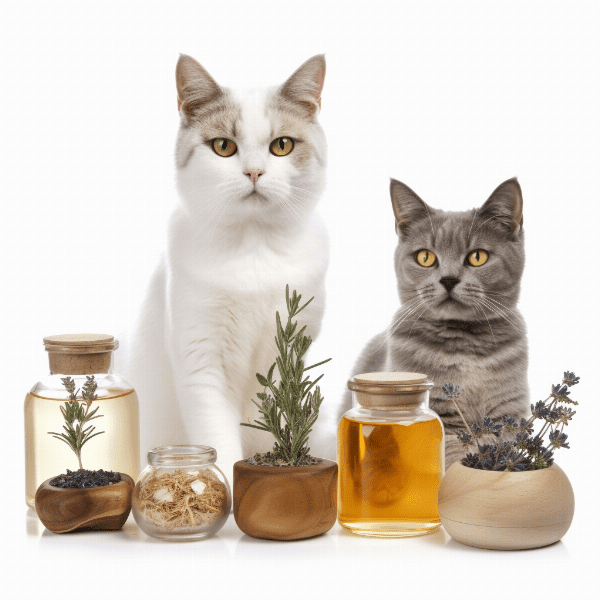
Diet and Nutrition for Cats with Gingivitis
Diet and nutrition play a critical role in the prevention and treatment of cat gingivitis. A healthy diet can help reduce inflammation in the gums, prevent the buildup of plaque and tartar on the teeth, and promote overall dental health.
Foods to Include in Your Cat’s Diet
When choosing foods for your cat with gingivitis, look for products that are high in protein and moisture and low in carbohydrates. This can help prevent the buildup of plaque and tartar on the teeth and gums. Some foods that are recommended for cats with gingivitis include:
- Wet food: Wet food is high in moisture and can help keep your cat’s mouth hydrated, preventing the buildup of plaque and tartar.
- Raw food: Some cat owners prefer to feed their cats a raw food diet, which is high in protein and can help promote dental health.
- Dental-specific diets: Some pet food companies offer dental-specific diets that are designed to promote dental health and reduce the risk of gingivitis.
Foods to Avoid
Some foods may increase the risk of gingivitis or exacerbate existing dental problems. When choosing foods for your cat, avoid products that are high in carbohydrates or contain added sugars. These can promote the growth of bacteria in the mouth and contribute to plaque and tartar buildup. Additionally, avoid feeding your cat hard or crunchy foods, as these can cause further damage to the teeth and gums.
Supplements for Cat Gingivitis
Certain supplements may also be beneficial for promoting dental health in cats with gingivitis. Some supplements that are commonly recommended for cats with gingivitis include:
- Omega-3 fatty acids: Omega-3 fatty acids have anti-inflammatory properties and can help reduce inflammation in the gums.
- Probiotics: Probiotics can help balance the bacteria in the mouth and promote overall dental health.
- Antioxidants: Antioxidants, such as vitamin E and selenium, can help boost the immune system and reduce inflammation in the gums.
.

The Role of Professional Dental Cleanings in Cat Gingivitis Treatment
Professional dental cleanings are an important part of the treatment and prevention of cat gingivitis. While regular at-home dental care is essential for maintaining your cat’s dental health, professional cleanings can help remove built-up plaque and tartar that cannot be removed with brushing alone.
What Happens During a Professional Dental Cleaning?
During a professional dental cleaning, your veterinarian will perform a thorough cleaning of your cat’s teeth and gums. This may involve scaling, which is the removal of plaque and tartar buildup from the teeth, as well as polishing to smooth the teeth and prevent future buildup.
Your veterinarian may also perform a periodontal exam to assess the extent of your cat’s gingivitis and determine whether any further treatment is needed. This may include X-rays to evaluate the health of the teeth and jawbone.
- Removal of built-up plaque and tartar: Professional cleanings can remove built-up plaque and tartar that cannot be removed with brushing alone, reducing the risk of further damage to the teeth and gums.
- Prevention of tooth loss: By removing plaque and tartar, professional cleanings can help prevent the need for tooth extractions due to severe gingivitis.
- Detection of other dental problems: During a dental cleaning, your veterinarian can also check for other dental problems, such as cavities or abscesses, that may require treatment.
How Often Should Your Cat Receive Professional Dental Cleanings?
The frequency of professional dental cleanings for cats with gingivitis depends on the severity of the condition and the individual needs of the cat. In general, cats with mild gingivitis may only need a cleaning once a year, while those with more severe gingivitis may require cleanings every 6 months.
Your veterinarian can help you determine the appropriate frequency of dental cleanings for your cat based on their individual needs.
In conclusion, professional dental cleanings are an important part of the treatment and prevention of cat gingivitis. By removing built-up plaque and tartar, professional cleanings can help reduce the risk of tooth loss and other dental problems, ensuring that your cat’s teeth and gums stay healthy and strong.
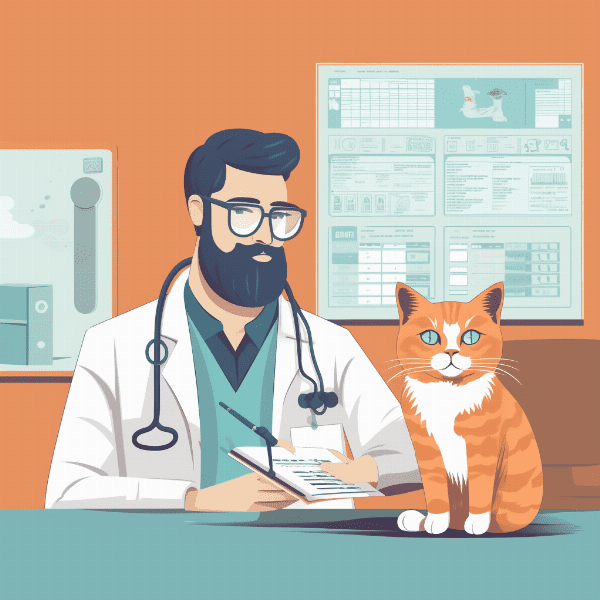
Medications for Cat Gingivitis: Pros and Cons
In addition to at-home dental care and professional cleanings, medications may be prescribed by your veterinarian as part of the treatment plan for cat gingivitis. While medications can be effective in reducing inflammation and promoting healing in the gums, they also come with their own set of pros and cons.
Common Medications for Cat Gingivitis
Some medications that may be prescribed for cat gingivitis include:
- Antibiotics: Antibiotics may be prescribed to treat bacterial infections in the gums and prevent the spread of bacteria to other parts of the body.
- Anti-inflammatory drugs: Anti-inflammatory drugs, such as corticosteroids, can help reduce inflammation in the gums and promote healing.
- Immunosuppressive drugs: In some cases, immunosuppressive drugs may be prescribed to reduce the immune system’s response to inflammation in the gums.
Pros of Medications for Cat Gingivitis
Medications can offer a range of benefits for cats with gingivitis, including:
- Reduced pain and inflammation: Medications can help reduce pain and inflammation in the gums, making it easier for cats to eat and chew.
- Prevention of further damage: By reducing inflammation and promoting healing in the gums, medications can help prevent the condition from progressing and causing further damage to the teeth and gums.
- Treatment of bacterial infections: Antibiotics can help treat bacterial infections in the gums and prevent the spread of bacteria to other parts of the body.
Cons of Medications for Cat Gingivitis
While medications can be effective in treating cat gingivitis, they also come with their own set of risks and potential side effects, including:
- Immunosuppression: Immunosuppressive drugs can weaken the immune system, making cats more susceptible to infections and other health problems.
- Antibiotic resistance: Overuse of antibiotics can lead to the development of antibiotic-resistant bacteria, making it more difficult to treat future infections.
- Side effects: Medications can cause side effects, such as vomiting, diarrhea, and loss of appetite, which can further impact your cat’s overall health.
Consult with Your Veterinarian
Before starting any medication regimen for cat gingivitis, it’s important to consult with your veterinarian. Your veterinarian can help you determine which medications may be appropriate for your cat’s individual needs and can advise you on the potential risks and benefits of each medication.
In conclusion, medications can be an effective part of the treatment plan for cat gingivitis, but they also come with their own set of pros and cons. By working with your veterinarian, you can determine the best course of treatment for your cat and help ensure that their teeth and gums stay healthy and strong.
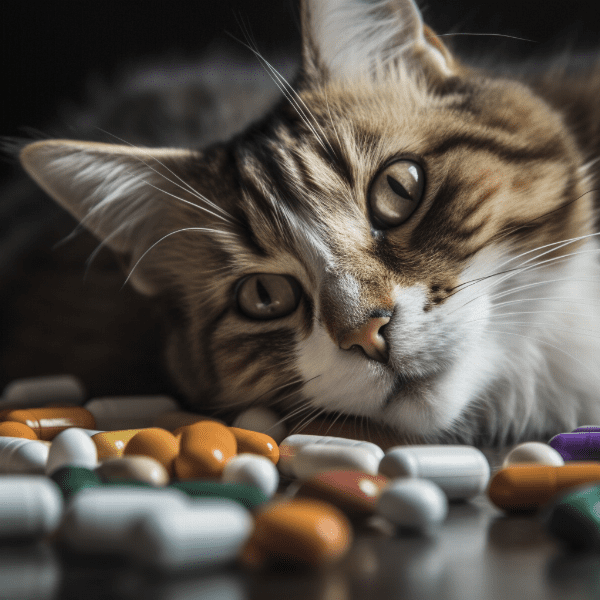
Preventing Cat Gingivitis: Tips for Long-Term Dental Health
Prevention is the key to long-term dental health in cats. By following these tips, you can help prevent cat gingivitis and other dental problems:
Regular At-Home Dental Care
Regular at-home dental care is essential for maintaining your cat’s dental health. Brush your cat’s teeth regularly with a soft-bristled toothbrush and toothpaste specially formulated for cats. Provide your cat with dental treats and toys that can help remove plaque and tartar from the teeth and gums.
Healthy Diet and Nutrition
A healthy diet is essential for preventing cat gingivitis and promoting overall dental health. Feed your cat a balanced diet that is high in protein and moisture and low in carbohydrates. Avoid feeding your cat hard or crunchy foods, which can cause damage to the teeth and gums.
Regular Veterinary Checkups
Regular veterinary checkups are an important part of maintaining your cat’s dental health. Your veterinarian can perform a thorough dental exam and recommend any necessary treatments or at-home care. Additionally, your veterinarian can identify and address any potential dental problems before they become more serious.
Professional Dental Cleanings
Professional dental cleanings are an important part of preventing cat gingivitis and other dental problems. Professional cleanings can help remove built-up plaque and tartar that cannot be removed with at-home dental care alone. Talk to your veterinarian about the appropriate frequency of dental cleanings for your cat.
Avoid Tobacco Smoke
Exposure to tobacco smoke can increase the risk of gingivitis in cats. If you smoke, avoid smoking around your cat and take steps to minimize their exposure to secondhand smoke.
Consider Water Additives
Water additives can be a simple and effective way to promote dental health in cats. These products are added to your cat’s drinking water and can help reduce bacteria in the mouth, freshen breath, and prevent plaque and tartar buildup.
By following these tips, you can help prevent cat gingivitis and other dental problems, ensuring that your cat’s teeth and gums stay healthy and strong for years to come.
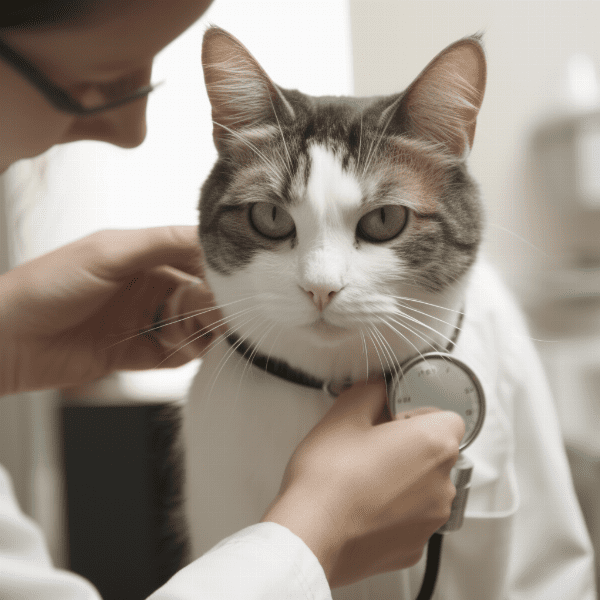
Monitoring Your Cat’s Progress: When to Seek Veterinary Care
While at-home dental care and professional cleanings can be effective in treating and preventing cat gingivitis, it’s important to monitor your cat’s progress and seek veterinary care if necessary.
Signs of Improving Dental Health
If your cat has been diagnosed with gingivitis and is undergoing treatment, there are several signs that their dental health may be improving, including:
- Reduced inflammation and redness in the gums
- Less bleeding when brushing or eating
- Fresher breath
- Increased appetite and energy levels
If you notice these signs in your cat, it’s a good indication that their dental health is improving. However, it’s still important to continue regular at-home dental care and follow-up with your veterinarian as recommended.
Signs of Worsening Dental Health
If your cat’s dental health appears to be worsening, it’s important to seek veterinary care as soon as possible. Some signs that your cat’s dental health may be worsening include:
- Increased redness and inflammation in the gums
- Bleeding when brushing or eating
- Difficulty eating or loss of appetite
- Bad breath
- Excessive drooling
If you notice any of these signs in your cat, it’s important to schedule an appointment with your veterinarian. Your veterinarian can perform a thorough dental exam and recommend any necessary treatments.
Follow-Up Care
After your cat has received treatment for gingivitis, it’s important to continue regular at-home dental care and follow-up with your veterinarian as recommended. Your veterinarian may recommend regular dental cleanings or other treatments to help prevent the condition from recurring.
In conclusion, monitoring your cat’s progress and seeking veterinary care as necessary is essential for maintaining their dental health. By staying vigilant and following these tips, you can help ensure that your cat’s teeth and gums stay healthy and strong for years to come.
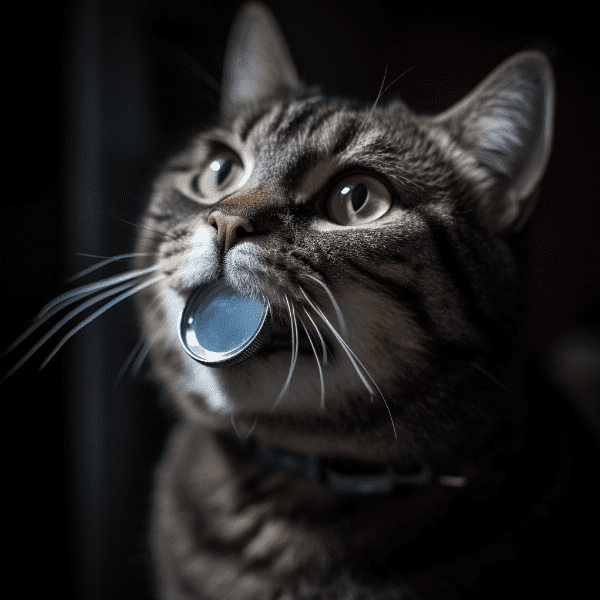
Conclusion: Maintaining Your Cat’s Oral Health at Home
Cat gingivitis is a common and treatable condition, but it’s important to take steps to maintain your cat’s oral health at home. By following these tips and working with your veterinarian, you can help prevent gingivitis and other dental problems in your cat:
- Regular at-home dental care, including brushing and providing dental treats and toys
- A healthy diet and nutrition that is high in protein and moisture
- Regular veterinary checkups and professional dental cleanings as recommended
- Avoidance of tobacco smoke
- Consideration of water additives to promote dental health
If your cat has been diagnosed with gingivitis, it’s important to work with your veterinarian to develop a treatment plan that is appropriate for their individual needs. This may include medications, at-home dental care, and professional cleanings.
Remember, prevention is key to maintaining your cat’s oral health. By following these tips and being proactive about your cat’s dental care, you can help ensure that their teeth and gums stay healthy and strong for years to come.
